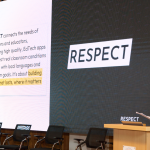May 9, 2021
In recent weeks there has been numerous mentions, reports and research studies about learning loss and how pupils can catch-up.

Some of the reports often use the term “Learning Loss” and “Catch Up” which are nice clichés but it’s not that simple is it? Who has lost? What have they lost? Where has it gone? Have some lost more than others? Why is that? How do we know?
As far as I can see none of these questions have been addressed in any real detail which could allow us to move on to consider the question of “Catch Up”?
The Institute for Fiscal Studies has called for a National Policy response
“By the time the pandemic is over, most children across the UK will have missed over half a year of normal, in person schooling. That’s likely to be more than 5% of their entire time in school. Absent a substantial policy response, the long-run effects of this learning loss are likely to be slow-moving and substantial. We will all be less productive, poorer, have less money to spend on public services, and we may be less happy and healthy as a result. We will probably also be more unequal, with all the social ills that come with it.”
https://www.ifs.org.uk/publications/15291
Some estimates are extremely concerning which makes it difficult to understand why the Government have chosen this time to cut the funding for pupil premium?
“Urgent support must be targeted at disadvantaged pupils and schools in areas of high deprivation, researchers have said, as figures reveal the gap in England between some pupils and their wealthier peers widened by 46% in the school year severely disrupted by the coronavirus lockdown.”
Similar findings from the Education Policy Institute also support this
https://epi.org.uk/wp-content/uploads/2020/05/EPI-Policy-paper-Impact-of-Covid-19_docx.pdf
And of the course the Education Endowment Foundation, the DfE go to source for research, and home of the Governments “Catch Up” Tsar also backs up this suggestion.
But is Learning Loss real?
However, there are some who feel the whole concept may be exaggerated especially by those organisations who have a vested interest in bidding for the Governments “catch up” funds.
Indeed there are some who suggest that some learners may have gained during the lockdown period. A recent study from the USA suggests “Learning Loss” is a misnomer.
“Learning loss, in general, is a misnomer. Kids’ scores are going up,” said Katie McClarty, the vice president of research and design at Renaissance.
For the most part, the gap between where students’ scores are now and where Renaissance would estimate them to be in a “normal year” is shrinking. But, the company found, that gap still exists.
Using past results, the researchers made an estimate of how well students would have done on these tests had the pandemic not hit. Then, they compared this estimate to students’ actual scores from this winter. They looked at students’ percentile ranks—a norm-referenced score that compares a student’s performance to that of other students in the same grade nationwide.”
However the same issue of complexity and starting point disadvantage also emerges
“The COVID-19 impact was greater for Black, Hispanic, and Native American students than for their white and Asian peers, and for English-language learners and students with disabilities. Students in these groups also saw a slower rate of score growth during the first half of the 2020-21 school year compared to the overall sample.”
Back here in Blighty there are those who believe the creativity, resilience and ingenuity this “golden generation” has shown is comparable to the generation of children who lived through the hardship and trauma of World War two.
Professor Stephen Heppel https://www.heppell.net/golden/default.html has a very clear and optimistic view about the “Golden Generation who he speaks to in the introduction to his “Golden Generation Certificate” offer:
“We address this to the children and students that the certificate is for:
There is much talk about you needing to “catch up” and of the things that some adults think that you have missed during this current pandemic. Yet you, your peers and your parents know that you have had many experiences (not all of them wonderful) that have been very different to the experiences you would have had, in conventional times, at school.
It’s not just you; the last huge worldwide disruption of children from many nations was World War 2. In the UK it faced children with everything from evacuation to underground shelters, bombing and rationing. Never mind the current lockdown for a few months – many children in WW2 were evacuated away from their families for years! But that disruption gave them much – resilience, ingenuity, responsibility, confidence, creativity, bits of unexpectedly deep knowledge, and more. The value of that is seen in that war-born generation: Vivienne Westwood 1941, John Lennon 1940, Clive Sinclair 1940, David Hockney 1937, Helen Mirren 1945, and so many more. They were a very special generation who did things in rather non standard ways, and who rebuilt the booming post-war world.
Your new current Golden CoVID Generation exhibit that same ingenuity & resilience but it’s not yet properly recognised. You need to know that you are also a very special, very valuable, wonderful generation. We haven’t seen anything like you all for 75 years and we may not see it again for another 75 years.”
So irrespective of whether you feel learners have lost out, and undeniably some have, the issue is much more complex and nuanced than catch phrases of “loss” and “catch up” and the solution much more complex than dishing out laptops to children, bunging a few million into the private tutor agencies or broadcasting talking head teachers.
If Professor Heppel is correct then perhaps the “Golden Generation” will be much better equipped to handle the next pandemic than this one?
RECOMMENDED: https://global-edtech.com/category/community/
The role of EdTech in the “new normal”
What is clear is technology has played a critical part in supporting teachers and learners during lockdown and it looks like it will play an ever increasing role in a “new normal”?
Several reports reaffirm that view. Firstly the “Shock to the System “ Professor Rose Luckin report from the Educate project at University College London makes a series of findings and recommendations about the need for investment in digital infrastructure, learning design but more importantly the development of the confidence, capability and capacity of the education workforce.
“Our key findings were that too little attention was given to the education ecosystem in its entirety and that effective connections are vital to supporting the education ecosystem. Our policy recommendations to connect and diversify support include:
- place the emphasis on the entire education ecosystem, as opposed to its constituent parts;
- address the urgent need for better communication and connection between and within the different communities that make up the English education ecosystem;
- improve government communications with the education ecosystem; • provide both practical short-term support and a long-term vision;
- question the reliance on attendance as a proxy for education and learning.”
https://www.cambridge.org/partnership/insights/shock-system-lessons-learned-covid-19/
Secondly despite over ten years of techno-scepticism at the heart of government policy and the destruction and depletion of the support infrastructure for the use of technology to support teaching, learning and assessment a recent UK Parliament report will hopefully lead to a more coherent vision about how technology can be used to engage and empower learners and extend and enhance learning.
This report from a wide range of respected academic researchers and Professors of Education is a step change from the usual rhetoric of Education Ministers of “taking back control” from the experts.
Key points:
- Comparing the effectiveness of distance learning to traditional methods of in-person learning is challenging and most available evidence comes from higher education settings.
- Evidence suggests that distance learning can be as, or more, effective than in-person instruction at achieving learning outcomes for students in some subjects and contexts.
- In higher education, the ‘quality’ of learning design and teaching, including adequate feedback and clear communication, may be more important than the mode of delivery for supporting learning outcomes.
- There are limited data on outcomes in schools and colleges. However, case studies suggest that fully remote learning requires a degree of autonomy that is best suited to motivated, older students.
- Learner engagement and motivation are key to effective distance learning. In schools and colleges, engaging all learners in distance learning is challenging. It requires parental support, integrated student-teacher and peer-to-peer communication, and access to hardware and study spaces.
- Well-designed, technology-enhanced assessment can be used both to monitor and evaluate student learning. However, the evidence base for what works best for integrating assessment into distance learning in different contexts is limited, particularly for formal exams and for assessment of vocational courses.
- Distance learning and EdTech could improve accessibility and inclusion in education, providing that learning design is inclusive and accessible and barriers, such as the digital divide, are addressed.
- Teachers across education sectors cite a lack of confidence and time to master new digital technologies and distance learning approaches as key barriers to their use. For distance learning to be effective, teachers need adequate support and training in EdTech use and how to design distance learning effectively.
- Many stakeholders consider that the pandemic has shown the potential of distance learning and EdTech to support effective learning. Some forms of distance learning, such as blended learning, are likely to be used more widely in education at all levels following the pandemic.
The full report can be downloaded here;
https://post.parliament.uk/research-briefings/post-pn-0639/
Finally, a very comprehensive report just released by UNESCO:
https://unesdoc.unesco.org/ark:/48223/pf0000377071
They conclude
“If we are concerned to create educational practices that work towards the common good and towards sustainable futures, then, our first concern must be to attend to the causes of existing injustices, individualisation and unsustainability and to proceed from there.”
And suggest that we need to learn these lessons from the past:
“In this paper we have laid some foundations for the development of ‘non-stupid’ optimism about educational technologies. These foundations imply first, a recognition of what we have learned from the past, namely:
1.That digital technologies alone do not transform education
2.That digital technologies do not improve learning
3.That digital technologies do not fix inequalities
4.That digital technologies do not alleviate teachers work
5.That there are unintended consequences of digital technology use in education that are impossible to predict and that stretch far beyond matters of learning
6.That any ‘impacts’ are context specific and tied with socio-technical factors
So in conclusion we need a much deeper understanding of terms like “Learning Loss” and “Catch Up” and then perhaps a clearer idea of who needs to catch up, why they need to catch up, what they need to catch up and if they need to catch up at all. Then let schools and colleges decide what will work best for their learners rather than top down blanket approaches, that sound good at the dispatch box but often do not work. The recent research reports about the impact of EdTech give us a really clear idea of what does and does not work.
Now we just need a Government and an Education Minister who will help shape a future vision and develop a strategy to implement it.
If Professor Heppel is correct then perhaps the “Golden Generation” will be much better equipped to handle the next pandemic than this one?
A version of this article was recently published in the TES










0 Comments